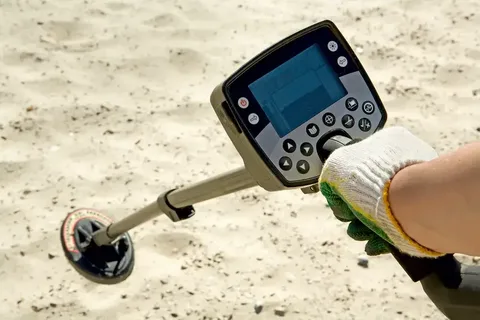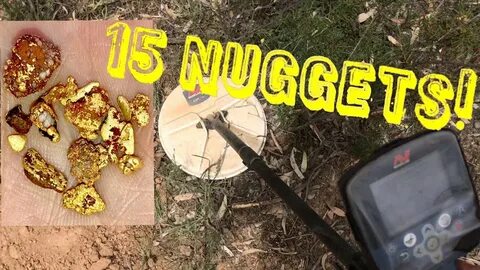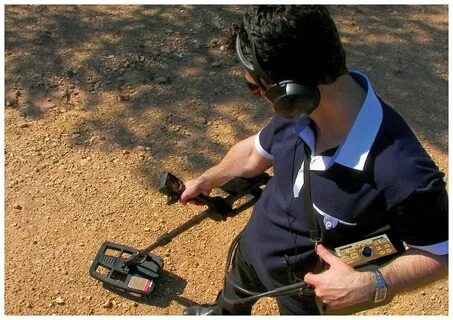Types of Metal Detectors: Discovering the Best Ones for Your Needs
When it comes to metal detecting, having the right type of metal detector can make all the difference in your experience. With a wide variety of options available on the market, it can be overwhelming to determine which one is best suited for your specific needs. In this article, we will explore the different types of metal detectors and provide guidance on how to choose the best one for your needs. Whether you are a beginner or an experienced detectorist, understanding the different types of metal detectors can help you make an informed decision and enhance your metal detecting adventures.
Discovering the best types of metal detectors for your needs involves considering factors such as where you will be using it, the type of objects you want to locate, and your level of experience. For example, if you are a beginner and plan to search in dry land, a basic VLF metal detector may be suitable. If you intend to search in highly mineralized soil or near water, a pulse induction metal detector may be more effective. Understanding your specific needs and conducting research on different types of metal detectors will help you choose the best one for your purposes.
The Ultimate Guide to Different Types of Metal Detectors
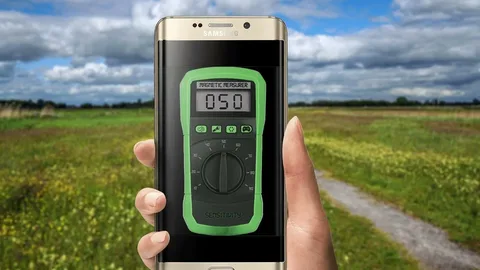
The Ultimate Guide to Different Types of Metal Detectors covers a wide range of detectors including VLF (Very Low Frequency), PI (Pulse Induction), Beat Frequency Oscillation (BFO), and Multi-frequency detectors. It also includes detailed information on their features, applications, and best use cases. Additionally, the guide explores the various technologies used in metal detectors, such as discrimination, ground balance, and target depth indication, to help you make an informed decision when choosing the right metal detector for your needs.
Exploring the Varieties of Metal Detectors and Their Uses
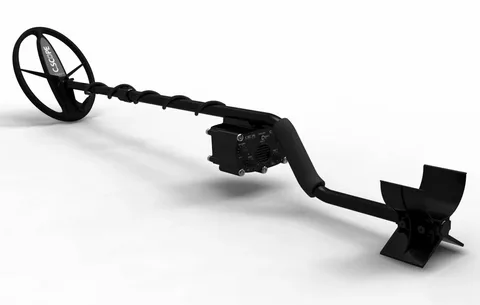
Exploring the Varieties of Metal Detectors and Their Uses: Metal detectors come in a variety of types, including walk-through, handheld, and ground search models. Each type has its own unique applications and uses. Walk-through metal detectors are commonly used in security checkpoints at airports, stadiums, and other public venues to detect concealed weapons or other prohibited items. Handheld metal detectors are used by security personnel for more targeted searches, such as at events or in building security. Ground search metal detectors are used by hobbyists, archaeologists, and treasure hunters to locate buried artifacts, coins, and other valuable items. The specific uses and features of each type of metal detector can vary widely, so it’s important to consider the intended application before choosing a model.
Choosing the Right Metal Detector for Your Treasure Hunting Needs

Choosing the right metal detector for your treasure hunting needs will depend on a few key factors. Firstly, consider the type of terrain you will be exploring. Some metal detectors are better suited for different terrains, such as beaches, parks, or deep woods.
Additionally, think about what you are hoping to find. Different metal detectors are designed for specific types of treasure, such as coins, relics, or gold. Consider the size and depth of the objects you are searching for, as this will impact the type of metal detector you will need.
Another important consideration is your level of experience. Some metal detectors are more advanced and may require more skill to operate effectively, while others are designed for beginners. Research the different features and settings to ensure that you choose a metal detector that matches your skill level.
Finally, consider your budget. Metal detectors can vary widely in price, so it’s important to find one that fits within your budget while still meeting your treasure hunting needs. Take the time to research and compare different models to find the best option for you.
Comparing Different Types of Metal Detectors for All Skill Levels

There are several types of metal detectors available on the market, each with their own features and benefits. When comparing different types of metal detectors, consider the following factors:
1. Technology: Metal detectors can use different technologies, such as very low frequency (VLF), pulse induction (PI), and beat frequency oscillation (BFO). Each technology has its own strengths and weaknesses, so consider the type of hunting you’ll be doing and the conditions you’ll be working in.
2. Skill level: Some metal detectors are designed for beginners, while others are more advanced and require some expertise to use effectively. Consider your skill level and choose a detector that matches your abilities.
3. Target type: Different metal detectors are better at finding certain types of metals, such as gold, coins, or relics. Consider the types of targets you’ll be searching for and choose a metal detector that is optimized for those items.
4. Frequency: Metal detectors operate at different frequencies, which can affect their sensitivity to different types of metals. Higher frequencies are better for finding small, shallow targets, while lower frequencies are better for larger objects at greater depths.
5. Budget: Metal detectors can range in price from affordable entry-level models to high-end professional detectors. Consider your budget and look for a metal detector that offers the best features and performance within your price range.
By considering these factors and comparing different types of metal detectors, you can find the best option for your skill level and metal detecting needs.
Understanding the Pros and Cons of Various Metal Detector Types
Metal detectors come in various types, each with its own set of advantages and limitations. Very low frequency (VLF) detectors are popular due to their sensitivity to small metal objects and ability to discriminate between different metals. However, they can be affected by mineralized ground, making them less suitable for use in highly mineralized areas. Pulse induction (PI) detectors are effective at detecting deep targets and are unaffected by mineralized ground, but they generally do not have the discrimination capabilities of VLF detectors. Beat frequency oscillation (BFO) detectors are the least expensive and simplest to use, but they are generally less sensitive and have less discrimination capability than VLF or PI detectors. Understanding the strengths and weaknesses of each type of metal detector can help you choose the best one for your specific metal detecting needs.
Which Type of Metal Detector is Best for Beach Hunting?
See also: machine for mining gold
When it comes to beach hunting, a waterproof metal detector is essential for detecting in the wet sand, shallow water, and surf. Look for a metal detector with a high frequency (around 15 kHz or higher) to better detect small targets like jewelry and coins. Additionally, a good discrimination feature is important to help filter out unwanted targets like bottle caps and trash. It’s also helpful to have a metal detector with a ground balance feature to adjust for the high mineralization often found on beaches. Finally, consider a lightweight and adjustable shaft for comfortable and easy use during long beach hunting sessions.
The Top Metal Detector Types for Gold and Precious Metal Detection
1. VLF (Very Low Frequency) Metal Detectors: These detectors are popular among gold prospectors due to their ability to detect small gold nuggets at shallow depths. VLF detectors are sensitive to mineralization in the ground, so they may not be as effective in areas with high levels of mineralization.
2. Pulse Induction (PI) Metal Detectors: PI detectors are known for their deep penetration and ability to ignore ground mineralization, making them ideal for gold and precious metal detection in highly mineralized areas. They can detect larger gold nuggets at greater depths compared to VLF detectors.
3. Beat Frequency Oscillation (BFO) Metal Detectors: BFO detectors are user-friendly and great for beginners. They are less sensitive to ground mineralization and can detect larger gold and precious metal targets. However, they may struggle with small, shallow targets.
4. Multi-Frequency Metal Detectors: These detectors are versatile and can operate at multiple frequencies, allowing them to detect a wide range of targets, including gold and precious metals. They are effective in a variety of soil conditions and are popular among serious treasure hunters and prospectors.
5. Magnetic Locators: While not traditional metal detectors, magnetic locators can be a valuable tool for finding ferrous metals such as iron and steel. They are commonly used in archaeological surveys and utility locating.
Each of these metal detector types has its own strengths and weaknesses, so it’s important to consider the specific features and capabilities that will best suit your gold and precious metal detection needs.
A Closer Look at Discriminating Metal Detectors and Pulse Induction Models
A Closer Look at Discriminating Metal Detectors and Pulse Induction Models involves exploring the differences between the two types of metal detectors. Discriminating metal detectors are designed to ignore certain types of metals, while pulse induction models are better at detecting metals in highly mineralized soils. Each type has its own advantages and limitations, and understanding these differences can help users choose the right detector for their specific needs. Discriminating metal detectors are suitable for coin shooting and relic hunting, while pulse induction models are better for gold prospecting and underwater use. Both types of metal detectors have their own strengths and weaknesses, and it’s important for users to consider their intended use before making a selection.
The Evolution of Metal Detector Technology and Model Types
The evolution of metal detector technology has seen significant advancements over the years, leading to improved performance and capabilities. Early metal detectors used simple concepts of electromagnetic induction to detect metal objects, but modern models incorporate sophisticated technology such as pulse induction and very low frequency (VLF) technology, which allows for greater accuracy and sensitivity.
There are various types of metal detectors available, each designed for specific purposes. For example, handheld metal detectors are often used for security and law enforcement purposes, while ground-penetrating radar (GPR) metal detectors are used for archaeological and geological applications. Other common types include underwater metal detectors for detecting submerged objects and hobbyist metal detectors for treasure hunting and recreational use.
Overall, the evolution of metal detector technology has led to a wide range of models with different features and capabilities, allowing users to choose the best tool for their specific needs.
From VLF to PI: Uncovering the Different Types of Metal Detectors
From VLF to PI: Uncovering the Different Types of Metal Detectors is a comprehensive guide that explores various types of metal detectors, including VLF (Very Low Frequency) and PI (Pulse Induction) models. The book discusses how each type operates, their strengths and weaknesses, and the best applications for each. It also offers practical tips for selecting the right metal detector for specific needs and provides insights into the latest advancements in metal detection technology. Whether you are a novice or an experienced detectorist, this book offers valuable information for making informed decisions and maximizing success in metal detecting.

